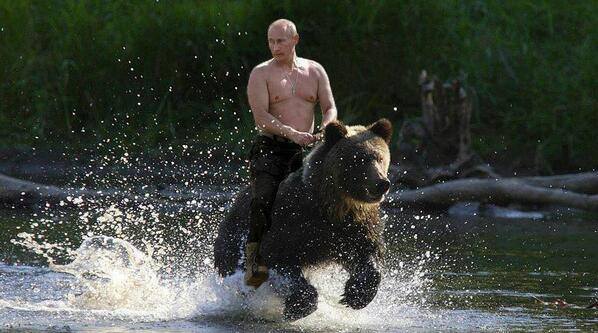Around December 2021 the famous Yousuf Karsh 1941 photograph of Winston Churchill was stolen from the Chateau Laurier in Ottawa and replaced by a forgery. The heist was about 2 months before Russia invaded Ukraine. The Russian invasion is not related to the photograph but also, very related.
The photograph is perhaps one of the most widely reproduced photos of all time. Prime Minister Churchill's belligerent expression exemplified the British resolve to win against Hitler, who many believed to be invincible.
Karsh at that time lived in the Chateau Laurier and was a friend of the Prime Minister of Canada - William Lyon Mackenzie King - and this is how he was able to take the photograph and why it was hanging in the Chateau Laurier.
The photograph is aptly titled ‘The Roaring Lion’. The roar behind the photograph has a story, some parts moving and some parts simply hilarious. Just prior to the photograph being taken, Prime Minister Churchill had given a rousing and defiant speech to the Parliament of Canada. In fact, if you look closely at the photograph you can see the speech peeking out of his pocket. It was a speech to an ally in Parliament but Churchill knew it was a speech that would be shared with the world. I picture him writing the speech by reaching deep within himself into places where hope and belligerence met.

After this speech, and probably carrying the mood of the speech with him, Churchill was brought into the Speaker’s Chamber. Here he found Karsh waiting, with his camera and lighting equipment. The Prime Minister of Canada, William Lyon Mackenzie King, hadn't told Churchill he was to be photographed so Churchill roared, "Why was I not told?” I suspect that the look captured on Churchill’s face was present at that moment. Churchill gave Karsh two minutes to take the photograph and this is how Karsh described the two minutes:
“Churchill’s cigar was ever present. I held out an ashtray, but he would not dispose of it. I went back to my camera and made sure that everything was all right technically. I waited; he continued to chomp vigorously at his cigar. I waited. Then I stepped toward him and, without premeditation, but ever so respectfully, I said, “Forgive me, sir,” and plucked the cigar out of his mouth. By the time I got back to my camera, he looked so belligerent he could have devoured me. It was at that instant that I took the photograph.”
The title of the photograph came, inadvertently, from Churchill himself, who told Karsh, “You can even make a roaring lion stand still to be photographed.” So Karsh named the photograph 'The Roaring Lion'.
This photograph, as much as Churchill’s speech, helped bolster the resolve to continue fighting during those difficult days.
Almost 80 years – perhaps even to the day – after Karsh took this photograph, it was stolen. Then two months later, Russia invaded Ukraine.
Russia believed it would win the war quickly because it was a much more powerful nation than Ukraine. It felt invincible, just like Hitler did. However, Russia faced two potent forces: history and Zelensky.
History taught Europe and North America that appeasement doesn’t work and the only thing to do when one country attacks a sovereign country is to fight. Churchill’s photograph embodies this fight.
After the 1938 Munich Conference, then British Prime Minister Neville Chamberlain declared his appeasement of Hitler had obtained “peace for our time.” When Chamberlain resigned in disgrace, Churchill - who had argued against appeasement - became the Prime Minister, outlined a bold plan of British resistance and declared Britain would “never surrender.”
When Russia invaded Ukraine, Ukrainian President Volodymyr Zelensky turned down an offer from the United States of evacuation from the capital city Kyiv, by famously stating, "The fight is here; I need ammunition, not a ride," and with that statement, Zelensky became a wartime leader and, his own ‘Roaring Lion’.
This is because human stories of history never stay in books about the past - they are relived by every generation.
Listening to Churchill’s 1941 speech in that Parliament of Canada and then, Zelensky’s 2022 speech to the Parliament of Canada - although they are very different - one can hear similar themes: both spoke to the courage of their people and the brutality of their opponent. Both were unbowed and pugnacious in their resolve. Leaders give speeches for their allies, for their enemies but, most of all, for their own people because of the personal costs of war. We see that now in videos of Ukraine. We know that more from stories of WWII. My mother-in-law told me half of the young boys she grew up with were killed in the war. I think of that incomprehensible loss when I see videos of the devastation in Ukraine. During wartime, leaders must be roaring lions to keep up the spirit of their people and play down the invincibility of their enemy.
Even though the original stolen photo, The Roaring Lion, has never been recovered, there are copies of this elsewhere, to remind us of a time back then and how easily back then becomes now. History never stays in books - as long as there are people, history is relived by each generation. Apparently, art continues to be stolen by each generation as well.







